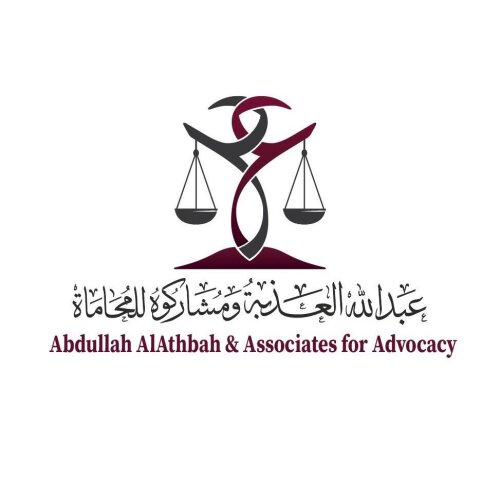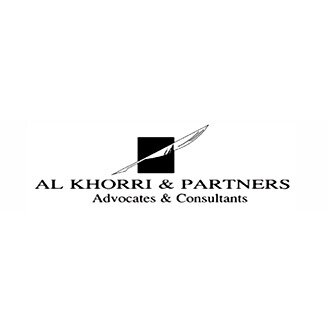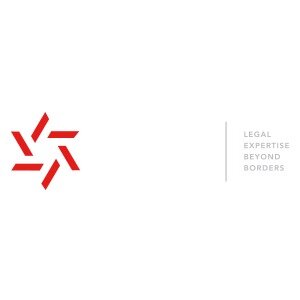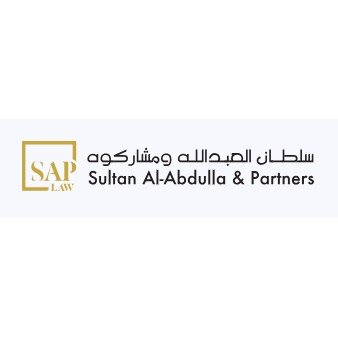Best Structured Finance Lawyers in Qatar
Share your needs with us, get contacted by law firms.
Free. Takes 2 min.
Or refine your search by selecting a city:
List of the best lawyers in Qatar
About Structured Finance Law in Qatar
Structured finance in Qatar refers to complex financial transactions that go beyond traditional lending, such as syndicated loans, securitisations, and project finance structures. These financial solutions are used by companies and institutions to raise capital, manage risks, and implement large infrastructure or development projects. Qatar's strategic investment in infrastructure and its ambition as a regional financial hub have given rise to a dynamic and sophisticated structured finance market. Local structured finance transactions are shaped by a combination of Qatari laws, Islamic finance principles, and international financial standards.
Why You May Need a Lawyer
Engaging in structured finance transactions is often complex and requires in-depth legal expertise. Here are some common situations where a lawyer's guidance is essential:
- Structuring large-scale project financing, such as for energy, transport, or real estate developments
- Negotiating syndicated loans or debt restructuring agreements
- Ensuring compliance with Qatari banking, finance, and Sharia law regulations
- Reviewing and drafting legal documentation for securitisation or asset-backed securities
- Handling cross-border matters that involve both Qatari and international laws
- Resolving disputes or defaults in structured finance arrangements
- Mitigating risks and protecting your interests through due diligence and risk assessment
Given the intricacies and regulatory requirements of structured finance in Qatar, a specialized lawyer helps safeguard your interests, streamline the process, and ensure legal compliance.
Local Laws Overview
Structured finance in Qatar is governed by a mix of national legislation, Qatar Central Bank (QCB) regulations, and, in some cases, rules from the Qatar Financial Centre (QFC). Some key aspects include:
- The Qatar Central Bank Law sets out regulatory oversight of all banking and financial activities in Qatar, including capital requirements, licensing, and reporting
- Islamic finance principles often apply, particularly for institutions governed by Sharia law, affecting permissible structures and products
- Qatari Contract Law, found in the Qatar Civil Code, regulates financial agreements, enforcement, and contractual obligations
- The Qatar Financial Centre (QFC) operates as a separate jurisdiction with its own legal and regulatory system for businesses licensed under its regime, offering additional flexibility for international structured finance transactions
- Anti-money laundering (AML) and combating the financing of terrorism (CFT) regulations must be observed, with strict compliance measures imposed by QCB and QFC authorities
- Securities offerings, including asset-backed securities and securitisations, are regulated to protect market integrity and investors
Understanding how these frameworks interact and apply to your transaction is critical and often requires professional legal interpretation.
Frequently Asked Questions
What is structured finance?
Structured finance involves complex financial arrangements designed to facilitate large capital requirements or risk management through instruments like securitisations, syndicated loans, or project finance.
Is structured finance allowed in Qatar under Islamic law?
Structured finance is permissible in Qatar but must comply with Sharia law where applicable. Islamic finance structures, such as Sukuk (Islamic bonds), are commonly used alongside conventional finance.
Who regulates structured finance in Qatar?
The Qatar Central Bank regulates financial institutions, while the Qatar Financial Centre’s Regulatory Authority oversees licensed entities operating within the QFC. Both set out rules relevant to structured finance transactions.
What types of projects typically use structured finance in Qatar?
Structured finance is often used in energy, infrastructure, real estate, and large corporate transactions that require significant funding and risk sharing among multiple parties.
What legal documentation is involved in structured finance?
Legal documentation may include facility agreements, security documents, intercreditor agreements, prospectuses for securities offerings, and Sharia compliance certificates where relevant.
Are foreign investors allowed to participate in structured finance deals in Qatar?
Yes, foreign investors can participate, especially through entities licensed in the QFC, which provides a familiar legal framework based on international standards.
Do structured finance transactions require approval from local regulators?
Regulatory approval may be required for certain transactions, especially those involving securities offerings or where QCB-licensed institutions are involved.
What are the risks associated with structured finance in Qatar?
Risks include regulatory compliance, enforceability of contracts, currency risks, and changes in economic or legal environments. Legal due diligence is key in identifying and mitigating these risks.
How are disputes resolved in structured finance matters?
Disputes may be resolved by Qatari courts or, if specified by contract, through arbitration or courts within the Qatar Financial Centre, which uses a separate legal system based on English law principles.
How can I ensure my transaction complies with all relevant laws?
Engaging a lawyer with expertise in Qatari and international structured finance is the best step to ensure your transaction complies with all applicable regulations and legal requirements.
Additional Resources
For further information and assistance, you may contact or consult the following resources:
- Qatar Central Bank (QCB) - the primary financial regulatory authority in Qatar
- Qatar Financial Centre (QFC) Authority and Regulatory Authority - provides regulatory guidance and licenses for financial services in the QFC
- Qatar Financial Markets Authority (QFMA) - oversees capital market activities, including securities and exchanges
- Local legal firms specializing in finance and commercial law
- International organization offices, such as the International Chamber of Commerce (ICC) in Qatar
- Qatar Chamber of Commerce and Industry for business and legal event announcements
Next Steps
If you require legal assistance in structured finance, consider the following actions:
- Identify your objectives and gather as much information as possible about your transaction or issue
- Consult with a lawyer who specializes in structured finance law in Qatar and is familiar with both Qatari and international legal frameworks
- Request an initial consultation to assess your needs and receive preliminary advice
- Prepare all relevant documentation and questions in advance of your meeting
- Evaluate the legal advice provided and ask for explanations in plain language if needed, ensuring you fully understand the implications
- Follow the lawyer’s guidance on structuring, compliance, and ongoing risks to ensure your finance arrangement is both effective and lawful
Qualified legal counsel is essential to successfully navigate structured finance transactions in Qatar and protect your interests in this sophisticated and evolving market.
Lawzana helps you find the best lawyers and law firms in Qatar through a curated and pre-screened list of qualified legal professionals. Our platform offers rankings and detailed profiles of attorneys and law firms, allowing you to compare based on practice areas, including Structured Finance, experience, and client feedback.
Each profile includes a description of the firm's areas of practice, client reviews, team members and partners, year of establishment, spoken languages, office locations, contact information, social media presence, and any published articles or resources. Most firms on our platform speak English and are experienced in both local and international legal matters.
Get a quote from top-rated law firms in Qatar — quickly, securely, and without unnecessary hassle.
Disclaimer:
The information provided on this page is for general informational purposes only and does not constitute legal advice. While we strive to ensure the accuracy and relevance of the content, legal information may change over time, and interpretations of the law can vary. You should always consult with a qualified legal professional for advice specific to your situation.
We disclaim all liability for actions taken or not taken based on the content of this page. If you believe any information is incorrect or outdated, please contact us, and we will review and update it where appropriate.
Browse structured finance law firms by city in Qatar
Refine your search by selecting a city.
















